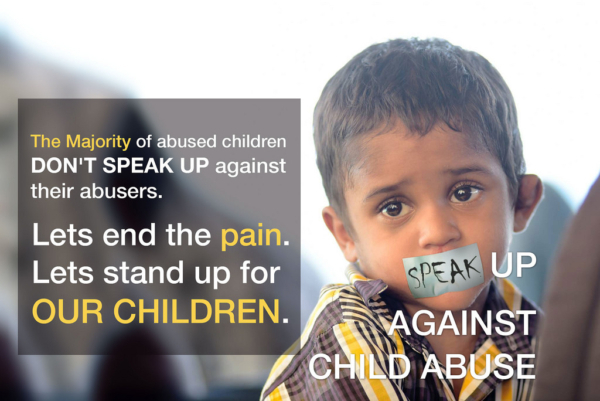

PSCP TRIFECTA
July 22, 2021 - July 23, 2021

PLEASE NOTE THE JULY 23, 2021 PSCP TRIFECTA IS SOLD OUT.
WE WILL BE OFFERING A FALL TRIFECTA ON FRIDAY, SEPTEMBER 17, 2021, PLEASE SAVE THE DATE, REGISTRATION WILL BE AVALIABLE SOON.
PSCP TRIFECTA
Earn credits for all 3 mandatory workshops, Child Abuse, Suicide, and Ethics
Friday, July 23, 2021
All Day Training
Location: Online Workshop
Updated Child Abuse and Trafficking Recognition and Reporting Training for Mandated Reporters in Pennsylvania: 2019-2021 Update
Presented By: Ron Fischman, Ed.D., NCSP
Registration: 7:45am Program: 8:15am to 11:15am
3.0 CE credits
Act 31 Credits
Act 48 Credits Available
Important note: Even if you have taken this course during your last licensing period, this course is updated, allows for new CE credits, and satisfies your new requirement with the state of Pennsylvania in this new licensing period.
In accordance with a Pennsylvania mandate for all health care professionals and funeral directors, PSCP: The Psychology Network presents this three hour workshop to discuss the obligation of mandated reporters and moral obligation of permissive reporters to report reasonable suspicions of child abuse and child labor and
sexual trafficking.
Objectives:
- Discussing the differences between Child Protective Services and General Protective Services.
- Describing components of Child abuse and Exclusions to Child Abuse.
- Listing common signs of Child Abuse and Sexual abuse
- Describing Mandatory and Permissive Child Abuse Reporters and penalties for not reporting.
- Describing Sex and Labor Trafficking and Methods of Reporting.
 Ron Fischman has been a practicing school psychologist since 1971. Prior to starting psychological practice, he taught English in a Philadelphia junior high school for 4 years. Dr. Fischman graduated from the Temple University’s School Psychology program with a Doctor of Education degree in January, 1974. He is a Nationally Certified School Psychologist.
Ron Fischman has been a practicing school psychologist since 1971. Prior to starting psychological practice, he taught English in a Philadelphia junior high school for 4 years. Dr. Fischman graduated from the Temple University’s School Psychology program with a Doctor of Education degree in January, 1974. He is a Nationally Certified School Psychologist.
For 34 years, Dr. Fischman was the Coordinator of Psychological Services at the Montgomery County Intermediate Unit in Pennsylvania. Certified in Pennsylvania as an English teacher, school psychologist, supervisor of psychological services, special education supervisor, director of pupil personnel services and holding a letter of eligibility as an Intermediate Unit executive director, Dr. Fischman also supervised related educational services of adapted physical education, OT/PT services and programs for intellectually gifted students.
From 1986 until 2012, Dr. Fischman served as a member of the Montgomery County Office of Children and Youth’s Multidisciplinary Team. From 1986 to 2009, Dr. Fischman served as a Pennsylvania Special Education Due Process Hearing officer. For 33 years, he served as the liaison between the Intermediate Unit and the Pennsylvania Governor’s School for the Arts.
Between 1975 and 1982, Dr. Fischman supervised a school psychology training clinic at Temple University. He has taught graduate courses in special education and psychology at Temple University, Pennsylvania State University, Thomas Jefferson University and Cabrini College. From 1975 to 2012, he had a private practice in Norristown, PA and in Richboro, PA. He is a Fellow of PSCP: The Psychology Network and of the Pennsylvania Psychology Association.
At the present time, Dr. Fischman, a former PSCP president and chair of the continuing education committee, is now serving as the membership chair. He has served on the School Psychology Committee of PPA and is a member of APA and NASP.
Suicide Overview: Theoretical framework, vulnerable populations, risk factors, and safety planning in a COVID environment.
Presented By: Kyle Holsinger, Psy.D.
Registration: 11:15am Time: 11:45am to 12:45pm
1.0 CE Credits
The current presentation will highlight theory, statistical trends in suicide, and identification of at risk populations. The theoretical underpinnings of Thomas Joiner and colleagues’ interpersonal theory of suicide will e discussed, as well as suicide risk factors and warning signs. Moreover, vulnerable populations and statistical updates will be presented in order to include the impact of telehealth and COVID in psychological practice. The final component of this presentation will address protective factors, deterrents of suicide, and safety planning. Discussion may be limited due to the brevity of this one hour presentation.
Objectives:
- Able to describe and incorporate the Interpersonal Theory of Suicide (Joiner and colleagues) into assessment and practice.
- Able to list trends in suicide and describe variety of populations, ages, and gender of those at risk for suicide.
- Able to describe and implement suicide screening tools into practice.
- Able to describe and implement a Safety Plan in treatment with patients at risk for suicide.
- Able to describe and articulate Risk factors and Warning Signs of Suicide.
 Kyle Holsinger is a Pennsylvania licensed psychologist, and he received a Doctorate of Psychology degree from the Philadelphia College of Osteopathic Medicine in 2005. He is the former Executive Director Clinical Director at Delaware County Professional Services (DCPS). He developed the practice’s Primary Health Care Integration program, and has collaborated and presented with numerous internal medicine, family medicine, pediatric offices, and specialty care practices. Dr. Holsinger has a special interest in treating populations with chronic medical conditions. He has presented at numerous conferences and community programs in the areas of school risk
Kyle Holsinger is a Pennsylvania licensed psychologist, and he received a Doctorate of Psychology degree from the Philadelphia College of Osteopathic Medicine in 2005. He is the former Executive Director Clinical Director at Delaware County Professional Services (DCPS). He developed the practice’s Primary Health Care Integration program, and has collaborated and presented with numerous internal medicine, family medicine, pediatric offices, and specialty care practices. Dr. Holsinger has a special interest in treating populations with chronic medical conditions. He has presented at numerous conferences and community programs in the areas of school risk

A Principle-Based Approach to Ethics
Registration 1pm Program: 1:30pm to 4:30pm
Presented By: Brett E. Schur, Ph.D.
3.0 CE Credits
Act 48 Credits Available
When all professional behavior and decisions are anchored in an overarching ethical philosophy, the result is ethical excellence. We begin with a discussion of the ethical principles which form the basis for the APA Ethics Code, then offer a series of vignettes taken from everyday problems encountered in clinical practice.
Objectives:
- Distinguish between ethical codes and ethical principles.
- Describe two examples of situational factors appropriately influencing ethical decision-making.
- Describe the steps in principle-based ethical decision-making.
- Discuss one example of a cultural factor in an ethical dilemma.
- Apply a stepwise approach to a sample ethical dilemma.

Dr. Schur is a psychologist in private practice in Haverford and Swarthmore, PA. Dr. Schur is a member of the Pennsylvania Psychological Association Board of Directors, where he serves as the Professional Psychology Board Chair. He was previously the Chief Psychologist for the Silvan Tomkins Institute. Dr. Schur works with adults of all ages, including patients with chronic medical illness, serious and persistent mental illness, anxiety, depression and trauma. He has recently lectured on suicide prevention, ethics, placebos, and anger management.
PSCP: The Psychology Network is approved by the American Psychological Association to sponsor continuing education for psychologists. PSCP: The Psychology Network maintains responsibility for this program and its content.

